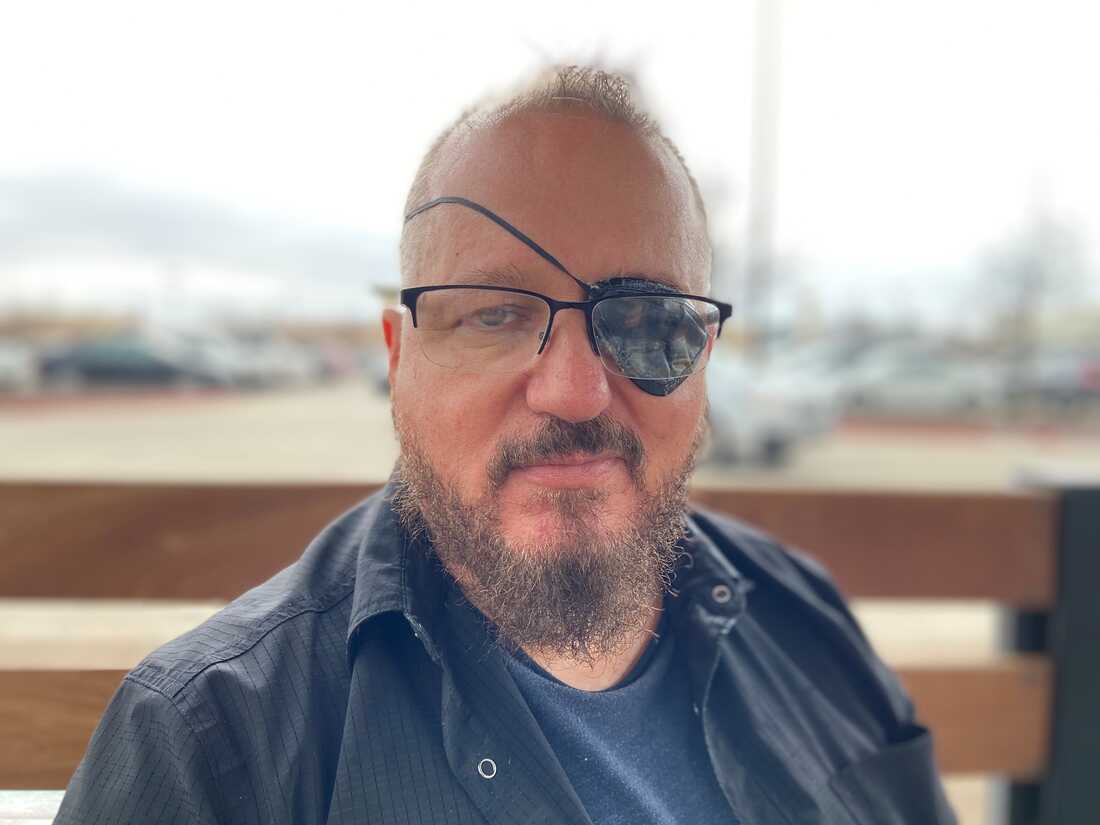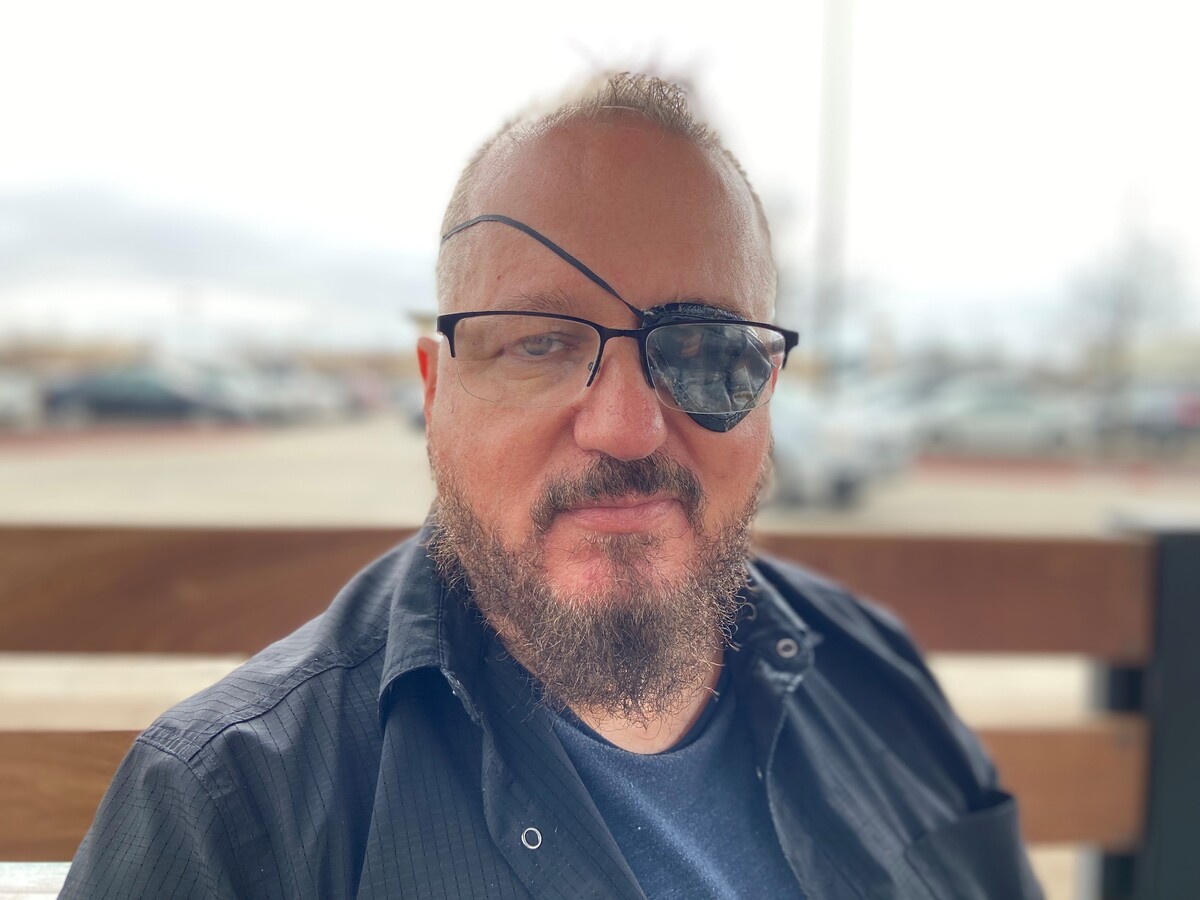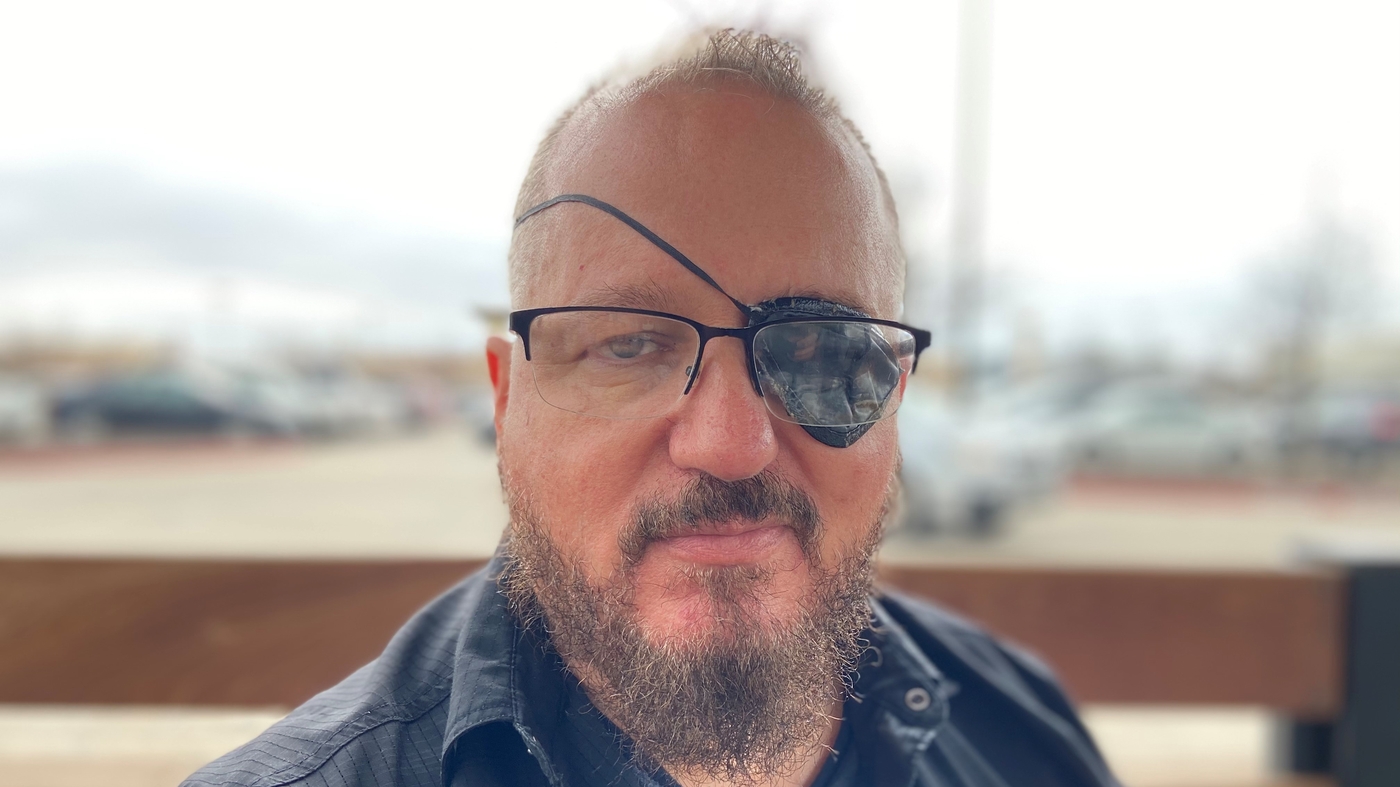
Stewart Rhodes, founder of Oath Keepers Aaron C. Davis/The Washington Post via Getty Images hide caption
toggle caption
Aaron C. Davis/The Washington Post via Getty Images

Stewart Rhodes, founder of Oath Keepers
Aaron C. Davis/The Washington Post via Getty Images
Stewart Rhodes, the founder of the far-right Oath Keepers, has been found guilty of seditious conspiracy and other offenses in connection with the Jan. 6 attack on the U.S. Capitol.
A federal jury in Washington, D.C., also convicted Rhodes of obstructing an official proceeding and tampering with documents. He was acquitted of two other conspiracy counts.
Rhodes did not enter the Capitol during the riot, but instead stood outside like a “battlefield general” surveying his troops, a prosecutor said.
All five defendants on trial in this case were charged with seditious conspiracy but only one in addition to Rhodes, Kelly Meggs, was found guilty. The three other defendants — Jessica Watkins, Kenneth Harrelson and Thomas Caldwell — were acquitted on that central charge.
But all of the defendants were found guilty of obstructing an official proceeding as well as a mix of other charges.
Jurors returned their verdict after nearly three full days of deliberations.
As the foreperson read the verdict aloud, Rhodes jerked his head down and scribbled a note to himself. Watkins nodded vigorously when she was found not guilty of seditious conspiracy and Caldwell closed his eyes several times.
U.S. Capitol Police Officer Harry Dunn, who testified during the trial, sat in the front row for the jury verdict. He looked emotional and let out a long sigh after the jury filed out of the courtroom.
The prosecution of the Oath Keepers leader and his co-defendants is the most consequential Jan. 6 case yet to have gone to trial.
Prosecutors accused the five of plotting to prevent, by any means necessary including force, the peaceful transfer of presidential power to Joe Biden.
Rhodes and the other Oath Keepers were the first Jan. 6 defendants to go to trial on seditious conspiracy charges. Two more seditious conspiracy trials — one involving more Oath Keepers and the other a group of Proud Boys — are set to start in the coming weeks.
Prosecution’s case
In this trial, the government called more than two dozen witnesses, including FBI agents, U.S. Capitol Police officers and two Oath Keepers who stormed the Capitol on Jan. 6 and pleaded guilty to conspiracy.
But the foundation of the government’s case was the hundreds of text messages, Facebook communications as well as audio and video recordings that allowed jurors to see and hear what the defendants were saying and thinking in the months leading up to Jan. 6, on the day itself and afterward.
In many of those communications, Rhodes and his co-defendants spoke in incendiary, sometimes even apocalyptic, terms about violence, civil war and the need to fight to keep Trump in power.
In one message prosecutors cited in their closing argument, Rhodes told his followers days after the 2020 presidential election: “We are not getting through this without a civil war. Prepare your mind, body and spirit.”
In the weeks that followed, the defendants began taking steps to coordinate their activities. Rhodes, meanwhile, kept urging his followers to resist a potential Biden presidency, which he said would be an illegitimate puppet regime of Communist China.
Once Trump declared a rally on Jan. 6, according to prosecutors, the defendants focused their efforts on that date.
Text messages showed them planning their travel to Washington, D.C., and discussing what sort of gear to bring, including weapons.
Ultimately, on Jan. 6 they stashed their guns at a Virginia hotel just outside Washington and had a quick reaction force on standby ready to rush them into downtown, if necessary.
On the day itself, Rhodes did not enter the Capitol, but three of his co-defendants did, in a military-style stack formation: Meggs, Harrelson and Watkins.
Days after the siege on the Capitol Jan. 6, 2021, a former military veteran secretly recorded Rhodes saying he regretted not bringing rifles to the Capitol and making threats against House Speaker Nancy Pelosi, D-California.
Assistant U.S. Attorney Kathryn Rakoczy urged jurors in her closing argument to not become “numb” to the violent rhetoric, warning that democracy is in a fragile state.
Defense’s case
Attorneys for the defendants pushed back against various aspects of the government’s case.
Witnesses testified that having a quick reaction force was routine for the Oath Keepers, and that the group had similar teams set up at previous rallies.
They said the Oath Keepers were there to provide security for pro-Trump speakers and VIPs.
The defense also elicited testimony from witnesses, including the two Oath Keepers who pleaded guilty and cooperated with the government, that there was no plan to storm the Capitol. They also said Rhodes never ordered them to enter the building.
But the government pointed to testimony from cooperating witnesses who said that there was an implicit understanding — an unspoken agreement — that the Oath Keepers reached to do whatever was necessary to prevent Biden from taking office.
And while there may have not been a concrete plan ahead of time, prosecutors said the riot at the Capitol presented an opportunity for the Oath Keepers to act to try to block Congress’ certification of Biden’s election win.



